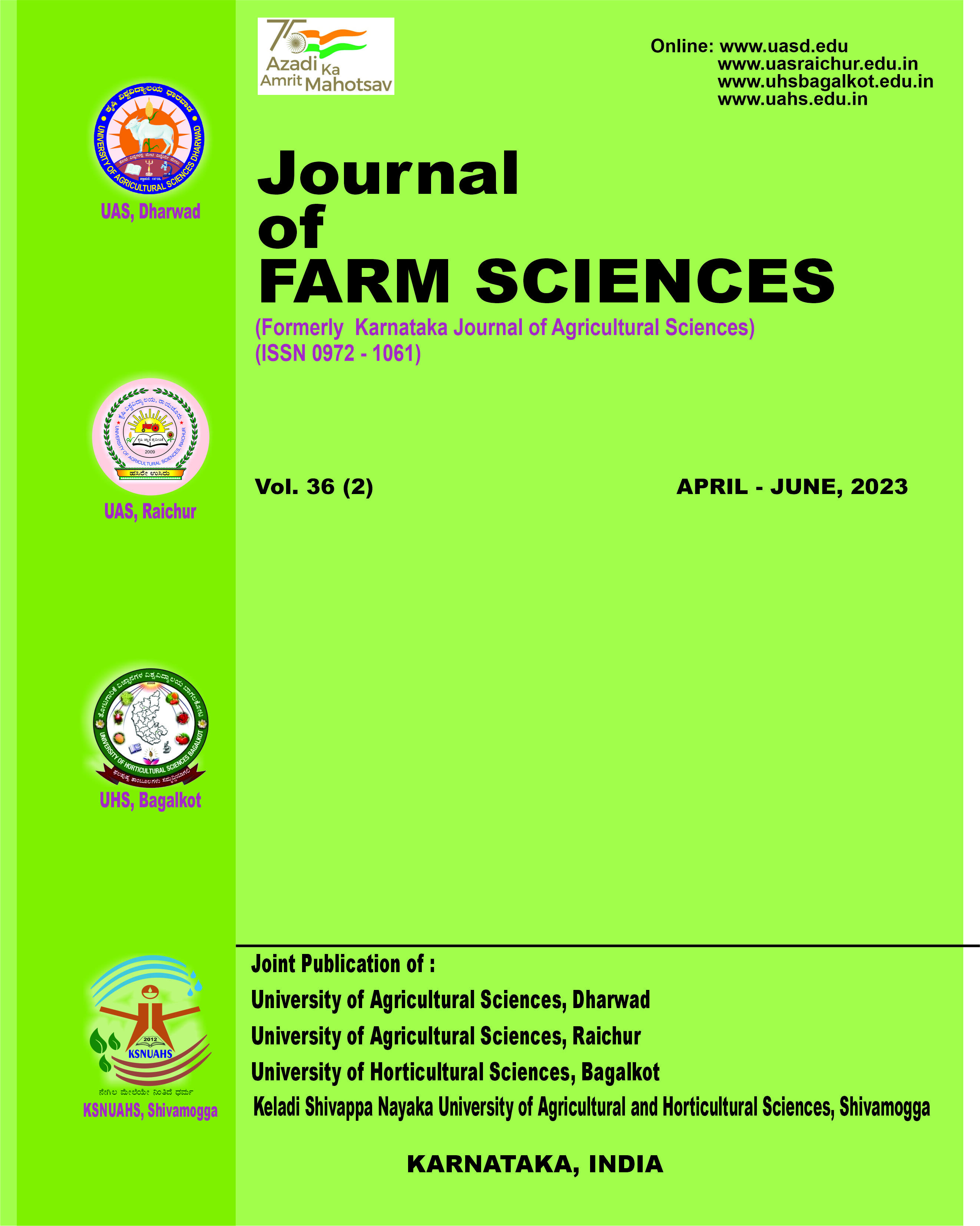Management of sucking pests of capsicum by using botanicals under protected condition
Keywords:
Botanicals, Capsicum, Protected condition, Sucking pests
Abstract
Botanical insecticides are derived from plants and their derivatives. In recent years, there has been a significantgrowth in the use of botanical products for the management of insect pests, which has raised their recognition and marketshare in the global insecticide market. The field efficacy studies revealed that neem oil (3%) was more effective in controllingsucking pests of capsicum viz., Thrips parvispinus (Karny), Polyphagotarsonemus latus (Banks), Aphis gossypii (Glover)and Bemisia tabaci (Gennadius) under protected cultivation. Based on overall observations, minimum thrips and aphidpopulation was recorded in neem oil (3%). The next best treatments in the decreasing order of efficacy were NSKE,pongamia oil and garlic oil. Similarly, neem oil was also found effective and recorded significantly lower number of yellowmites and whiteflies followed by NSKE, garlic oil and pongamia oil. Our results suggested that neem-based products havehigher efficacy, diverse mode of actions such as repellent, anti-feedant, oviposition deterrent and moulting inhibitors as astand-alone management tool for sucking pests and would require integration with other management practices.
Published
2023-03-20
How to Cite
LOGESWARAN, K., KAMBREKAR, D., MALLAPUR, C., & BIRADAR, M. (2023). Management of sucking pests of capsicum by using botanicals under protected condition. Journal of Farm Sciences, 36(01), 91-97. https://doi.org/10.61475/jfm.v36i01.323
Section
Research Article
Copyright (c) 2023 Journal of Farm Sciences

This work is licensed under a Creative Commons Attribution-NonCommercial-NoDerivatives 4.0 International License.


